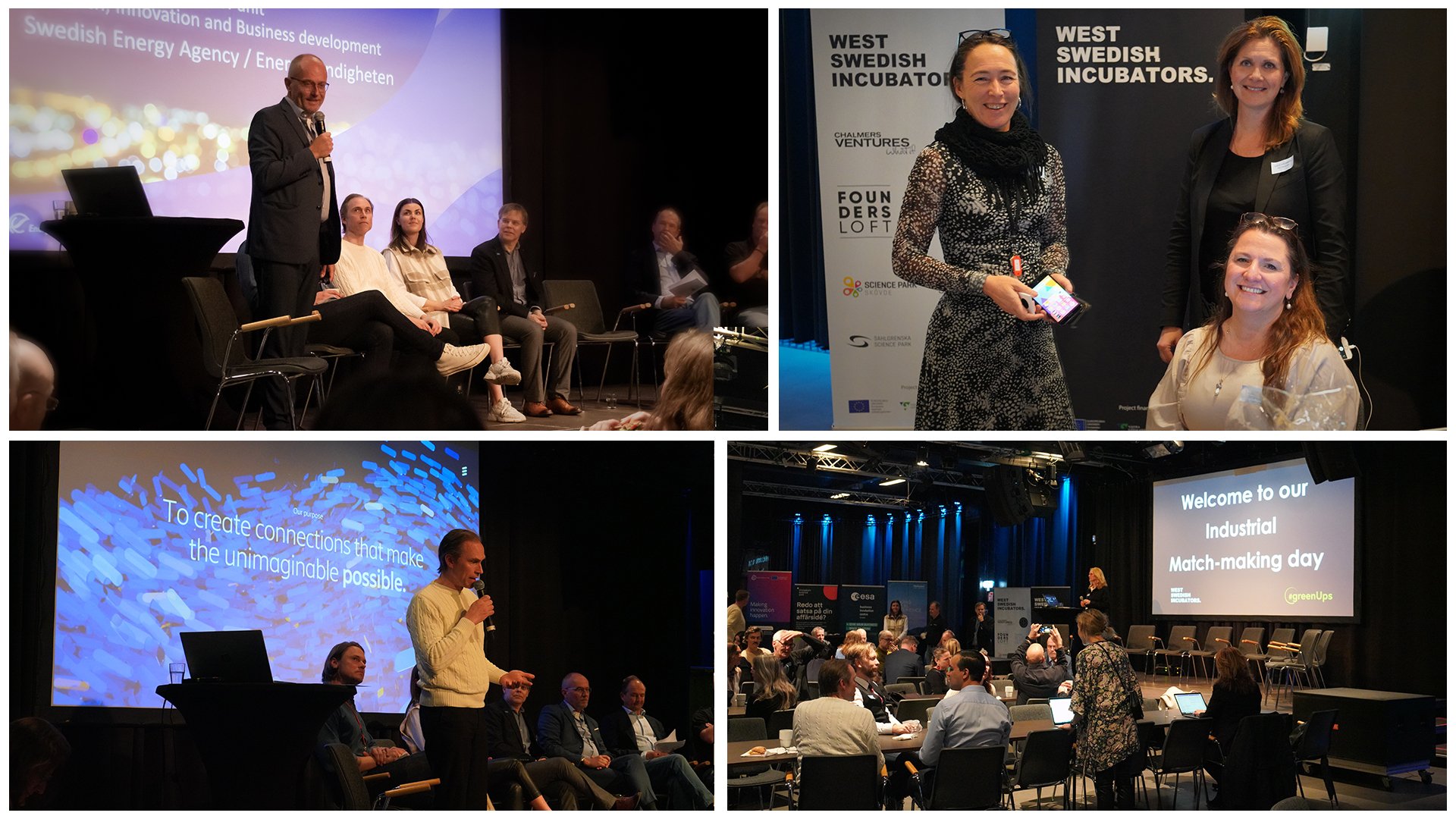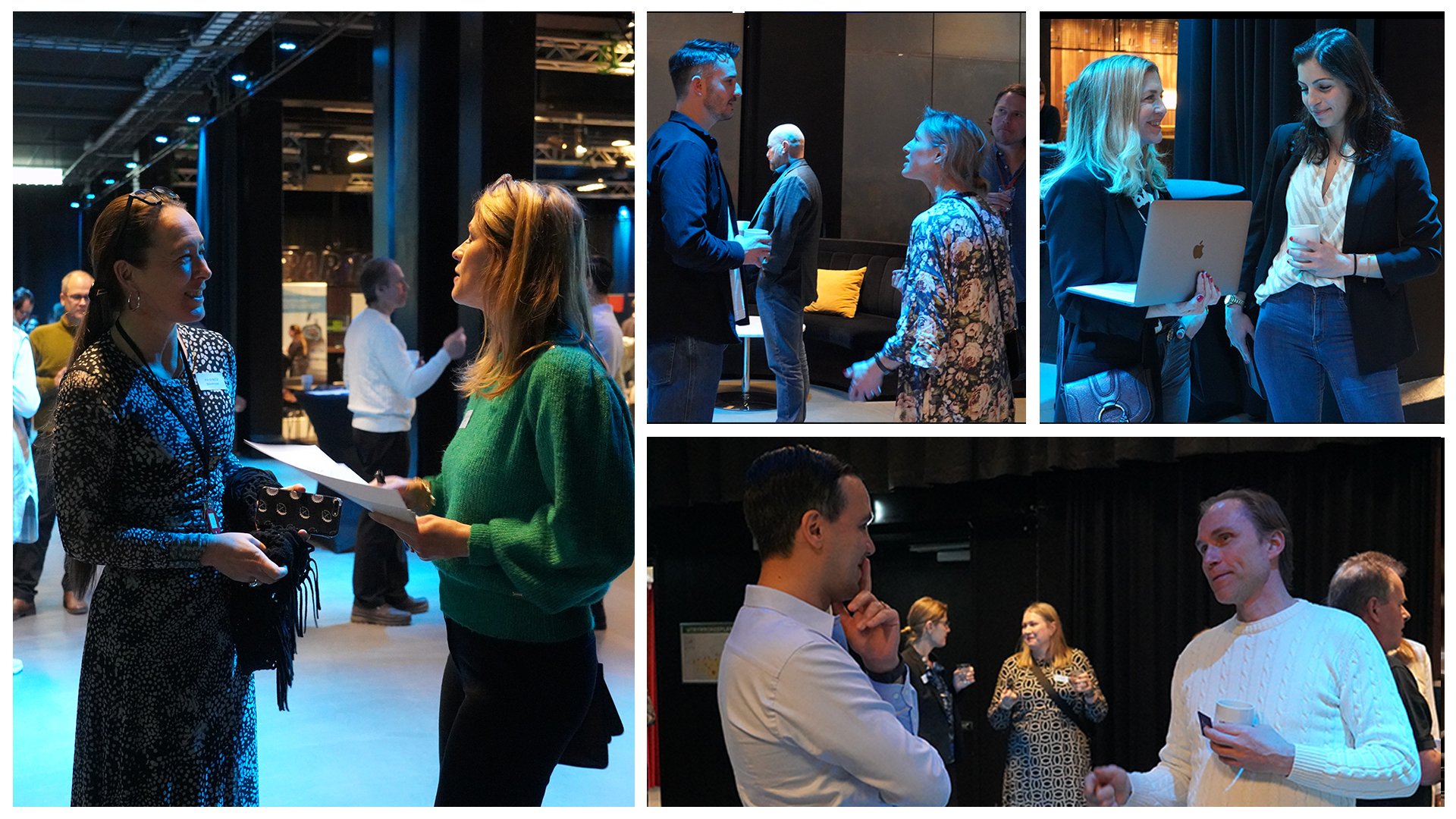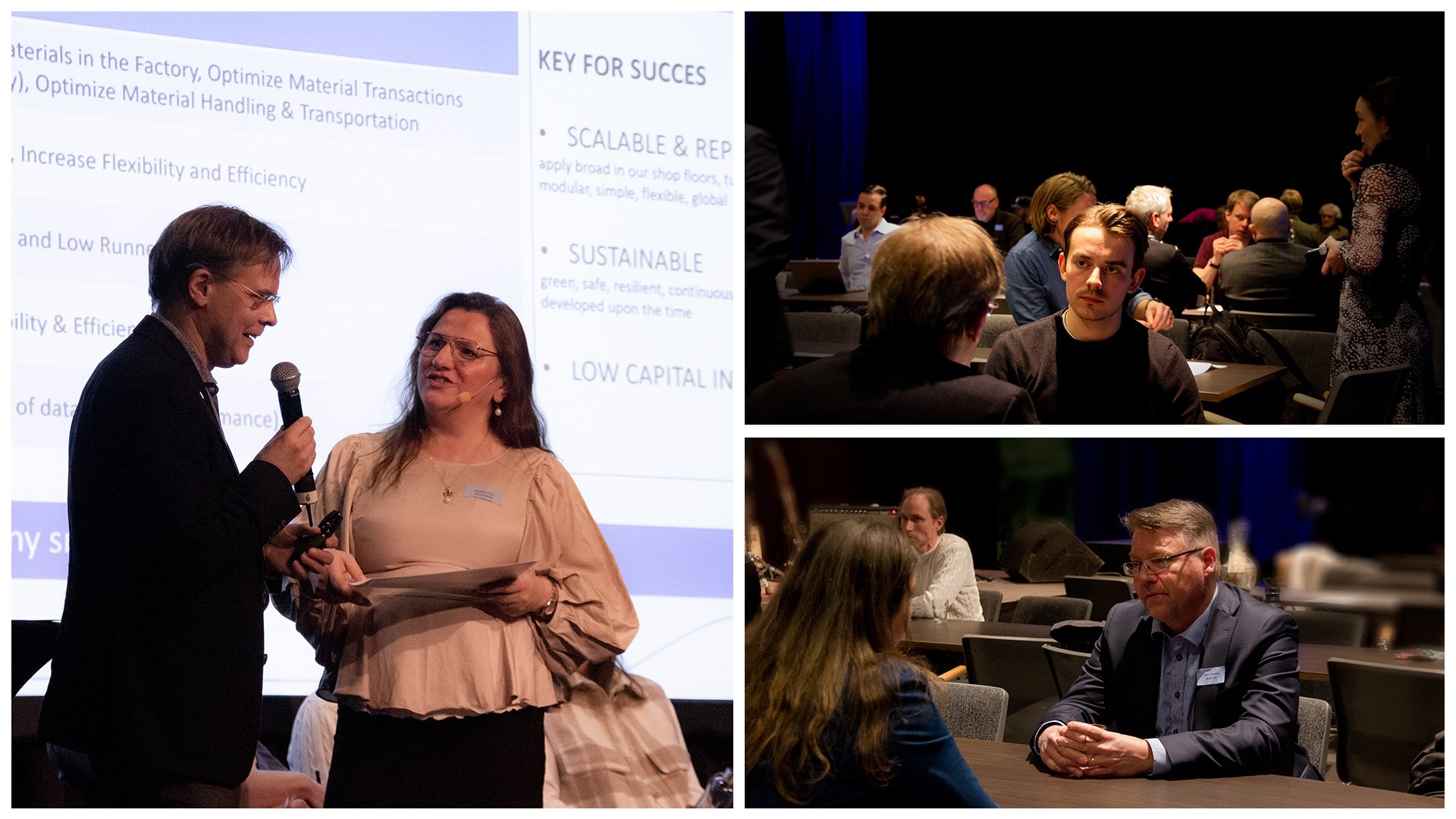A successful matchmaking event for startups and corporates
The 7th of April West Swedish Incubators and #greenUps held an industrial matchmaking event where corporates had the opportunity to make reverse pitches to startups about their innovation needs of and what challenges they are facing in the hope that the startups can help them solve them.
First to pitch was Markus Hellqvist from Skanska who summed up three important areas on their digitalization journey: digitization of information, data availability and use of digital information. To create value for their customers through digitalization Skanska will need to advance within all three areas, and he claimed that startups can accelerate that development. Markus also appreciated that the event addressed a combination of digital and sustainable innovation as these go hand in hand.
Startups are more agile than we are and can be our antennas to identify new trends, develop new technologies and ways of working. Also, software development is not the core competence of a construction company. On the other hand - building teams and partnering with experts is what we are good at - we know that we are better together. Markus Hellqvist, Development Manager at Skanska, said.
Collage. Photos from the event. Photo: Melisha Linnell.
Lars-Erik Lindberg, from Ericsson, saw many similarities with Skanska in the challenges about data. Ericsson has always been about communication, but it’s been a paradigm shift from voice to data transport within networks and connecting all kinds of devices.
In big companies we tend to be very focused on our core thing. When we start to listen to startups they broaden our view and give us examples how we can extend our technologies. Startups are super important because they challenge us. They take high risk and we wouldn't perform as good without them, Lars-Erik Lindberg, Innovation Leader at Ericsson, said.
Lars thought that the day was inspirational for both startups and the corporates. During the one-to-one meeting he met with people thinking about the same idea but from different perspectives. These meetings will lead to more meetings at Ericsson to explore the possibility of cooperation in the future. Lars-Erik emphasized the importance of cooperation and that we are all part of an ecosystem, where they can provide the connectivity of data and others can contribute with their domain knowledge.
How to work with data was a theme throughout the pitches but the challenges differ. Amanda Dalstam, from GKN Aerospace, said that their biggest challenge is that they have lots and lots of data, but it’s all in low volumes. They need to find algorithms solutions to be able to predict, where quality can deviate within the low stream data.
The other big struggle for GKN Aerospace is sustainability. GKN Aerospace wants to keep flying and to connect people from all over the world, so there’s a lot to innovate. New types of engines and new fuels will lead to the need for design changes of both aircrafts and airports. Amanda explained that they work in both short and long term perspective, as well as pros and cons concerning new innovations.
We really need help to bring new ideas to the table. And if we can make only small changes, it can make huge impact. In this sense, startups are both naïve and creative. They come with no baggage and when they present an idea you see that this might be a way to do it. When you’ve been in the industry for a while you start to be less open minded about solutions, Amanda Dalstam, Strategy & Business Innovation at GKN Aerospace, said.
Although they have of course evaluated many solutions over the years they are willing to reconsider and revisit old ideas as well as exploring new ideas. GKN Aerospace talked about another important aspect of digitalization, the need to be able to monitor production and control quality without needing a human to look at every item produced in a manufacturing process.
Ola Gustavsson, from Xylem Inc, explained that they have a similar challenge in monitoring all their water pumps, which often need to transport water long distances, and in monitoring the bigger picture of a city’s whole water system. If all pumping stations could be monitored maintenance could become proactive rather than reactive and problems could be avoided. Climate change, and the resulting heavier rain and storms, is making this use of this kind of monitoring more urgent.
Startups can complement what we do ourselves and bring speed. Everything that is adjacent falls to the side in the business and startups can help with that. And we can help startups to scaling up the sales, Ola Gustavsson, Manager Production Development at Xylem Inc, said.
All of the corporates agreed that startups being an essential part of the innovation ecosystem. Pontus All, from Volvo Group, talked about their challenges related to connected vehicles and how Volvo Group wants to work more closely with the entire value chain, including shippers, to develop new services and to reduce their carbon footprint. He also spoke about the need of corporation with startups and other partnerships as a key to success.
Startups can have a narrow focus. More startups will help lead the way, and we want to be part of their journey by working with them, Pontus All, Senior Venture Development Manager at Volvo Group, said.
Most of the corporates that pitched during the day have their own acceleration programs for startups that they find interesting. One of them that’s had a lot of success is IBM and its accelerator which is present in many parts of the world. Frode Langmoen showed a lot of examples of different startups that have come through their process.
We take in about 20 startups every year. We’re always looking for innovation and if you’re a match we put you into the program, Frode Langmoen, Technology Executive Ecosystem development at IBM, said.
Data and digitalization weren’t the only challenges that pitchers seek help from the startups with. Jan Utas, from Wellspect which is a leading provider of continence care products, talked about their biggest issue being finding the right material for products in the future.
Our products are single use products and our patient are very dependable on the products. We need to find sustainable and reliable materials for the future, Jan Utas, Senior Scientific Advisor at Wellspect HealthCare, said.
One of the pitchers was Martin Svensson from Energimyndigheten. It’s clear that energy is a central part in the Industry 4.0 and Energimyndigheten is working on how to increase the energy capability of societies, find new energy solutions and help Sweden grow in both economical and ecological ways. He explained startups can receive funding from the agency, but it’s crucial that the startup meet the agency’s requirement and write their applications correctly.
We are here to spend money on the support of organizations that have good proposals, so please, read what we’re looking for in the calls we have published and take help from the agencies to design the best project proposal, Martin Svensson, Head of Sustainable Business Development, Energimyndigheten, said.
Last pitcher on stage was Claes Radojewski from Nvidia whose goal was to grow their AI business even further. Innovation is extremely important for them, and they put a lot of effort into their inception program, a startups program which gives startups access to expertise, production teams and partner introductions and more.
So what did the attending startups think about the concept with reversed pitches?
It’s very interesting with this reversed speech setup. They all were very aware of what they need. In a text it can be very difficult to understand what they need. Now when they can explain, you can easily sense if your idea is a match. And also, I could use better words when I talk to them, Carola Compá who works for Dpella AB, a startup, said.
When Amanda Dalstam, from GKN Aerospace, talked about analyzing employee data, Carola thought it could be a match and they had an interesting meeting about how Dpella’s analytics on private data while respecting the privacy of individuals could solve the GKN Aerospace challenge.
Stefanie Najafi and Jenny Johansson from the startup Eyescanner, an AI-based software that detect the influence of drugs through image analysis of the eye area, had a meeting with both Skanska and GKN Aerospace.
Matchmaking is the best type of event. To get in direct contact with a company and get feedback directly saves time. You get response to questions like how far away that is for us. And it’s a whole different thing to meet in person, Stefanie Najafi and Jenny Johansson said.
To hear that made West Swedish Incubators and #greenUps, who frequently arrange this type of event, very happy and they are already planning the next physical matchmaking event.
Are you a representative from a corporate that would like to pitch at our next event? Please let us know. We’re always looking for more connections with the industry that hopefully leads to new cooperation’s, and that more innovations can grow and reach the market, Klementina Österberg, the moderator of the day and part of both West Swedish Incubators and #greenUps communities, said.




